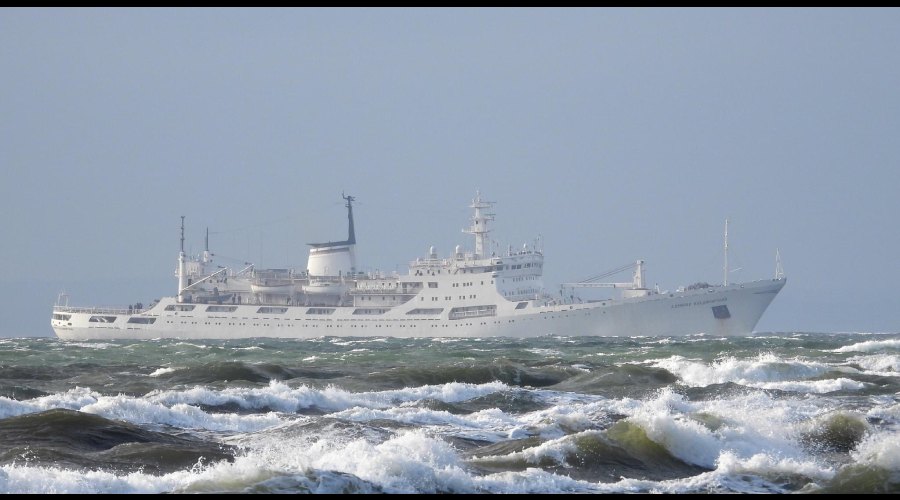A Russian research vessel, which has been prospecting for oil and natural gas in the Antarctic, docked in South Africa on Saturday following protests by green campaigners who say its operations in the region violate a treaty banning mineral exploration.
Several members of the Extinction Rebellion environmental group held banners reading “Hands off Antarctica” as the polar explorer ship Akademik Alexander Karpinsky arrived as scheduled in Cape Town's port during the morning.
Earlier this week, several dozen protesters from Greenpeace and Extinction Rebellion demonstrated at the port, saying the ship's seismic surveys in the Antarctic were a threat to marine life in the area and violated a 1958 international agreement.
A 1998 amendment to the 55-nation Antarctic Treaty, to which both Russia and South Africa are signatories, prohibits all mineral explorations and extractions in the region.
RosGeo, the state-owned Russian exploration company that operates the Akademik Alexander Karpinsky, says it has been conducting research in Russia's designated part of Antarctica since 1970 to explore for hydrocarbons.
According to RosGeo's website, the hydrocarbon potential of the designated area is estimated at approximately 70 billion tonnes. RosGeo did not immediately reply to a request for comment.
Extinction Rebellion representative Cassie Goodman told Reuters that South Africa's government was being complicit in environmental damage by allowing the Russian ship to dock. South Africa's Foreign Ministry did not immediately reply to a request for comment.
President Cyril Ramaphosa's government has friendly relations with Russia. South Africa says it is impartial on the Ukraine conflict and has abstained from voting on UN resolutions on the war.
Earlier this week, Russian Foreign Minister Sergei Lavrov visited South Africa and the two countries along with China are set to conduct a joint military exercise on the African nation's east coast between February 17 and 27.











